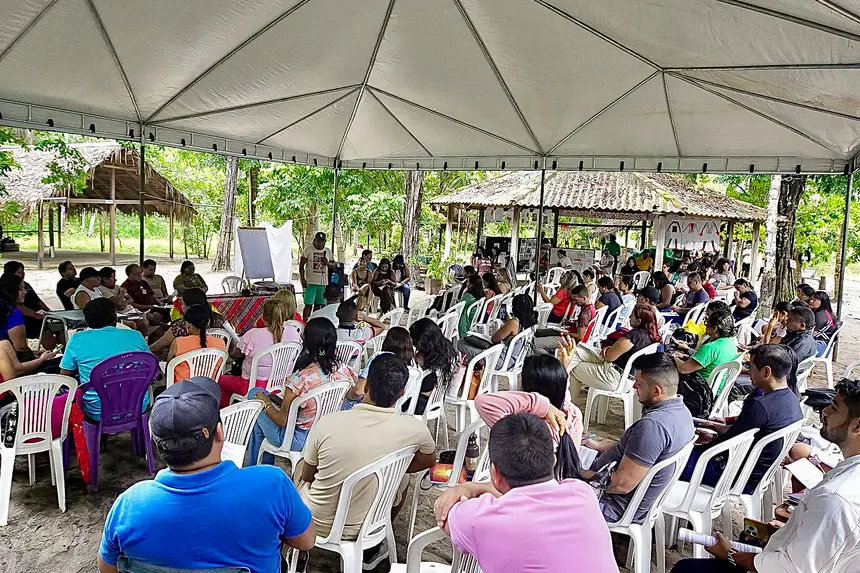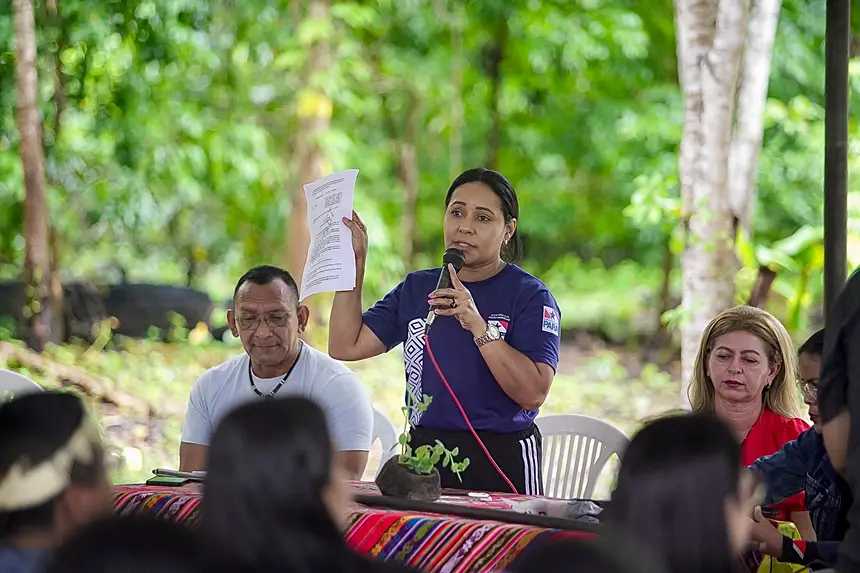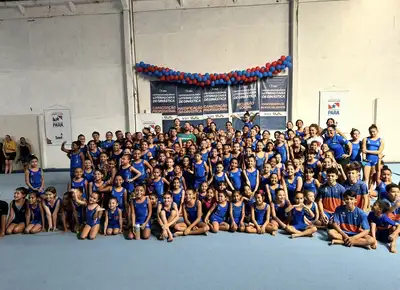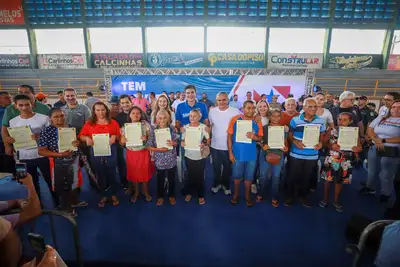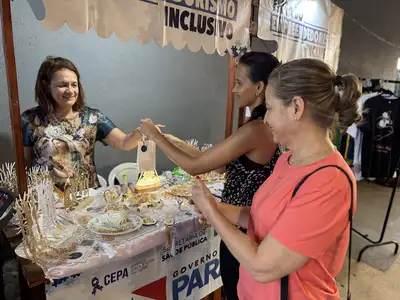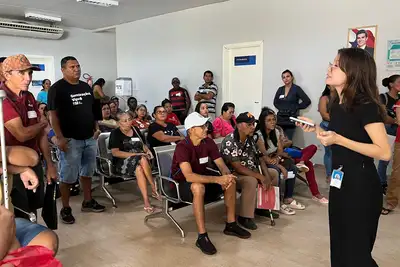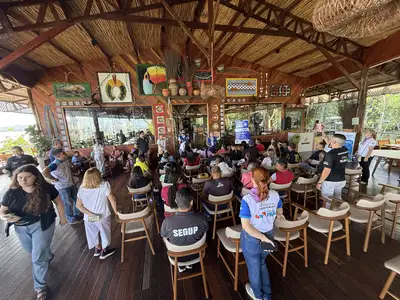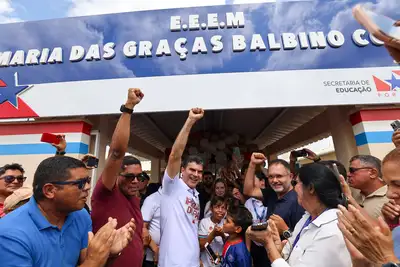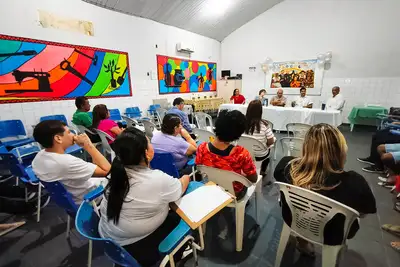Consultation in Indigenous Territory 'Gavião' Strengthens Collective Construction of the Indigenous School Education Law in Pará
Public hearing in the Indigenous Land Mãe Maria brings together the Gavião people and reaffirms the importance of differentiated, bilingual, and intercultural education
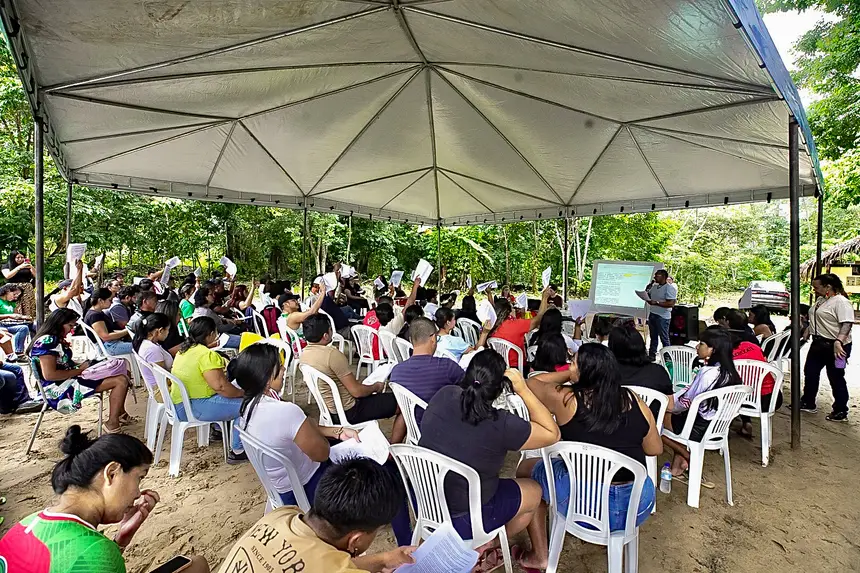
The Government of Pará, through the State Secretariat for Indigenous Peoples (Sepi), held this Wednesday (22) the 14th Prior, Free, and Informed Consultation on the draft of the Indigenous School Education Law in the State. The activity took place in the Akrãtikatejê village, located in the Indigenous Land Mãe Maria, in the municipality of Bom Jesus do Tocantins, with the participation of leaders, educators, and youth from the Gavião ethnicity.
The hearing is part of an unprecedented process of collective construction of the first state legislation aimed exclusively at indigenous school education. The proposal is being developed by a Working Group (GT) established by Decree No. 4,430/2025, with representatives from indigenous peoples and public institutions.
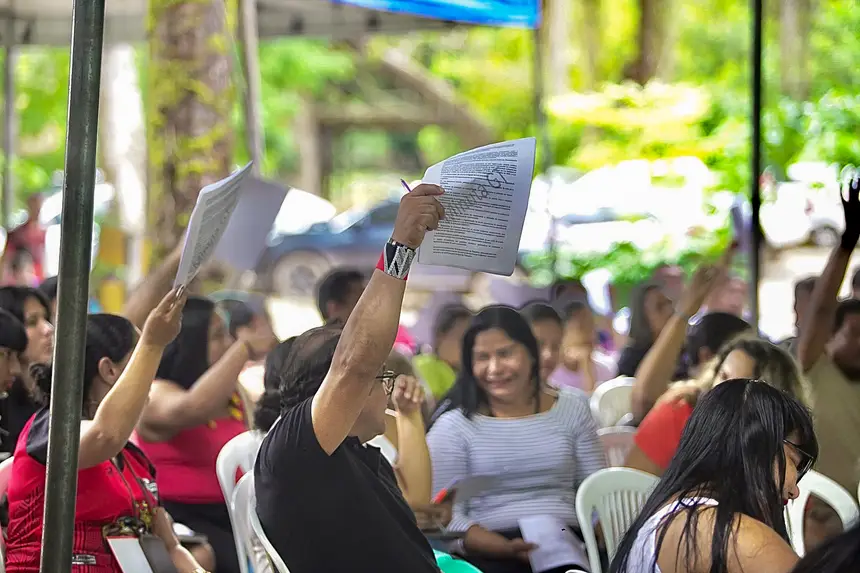
During the consultation, specific contributions from the Gavião people were recorded, in addition to the resumption of suggestions presented by other ethnicities in previous hearings, strengthening the plural and representative character of the draft law.
Professor Joelma Alencar, coordinator of the Indigenous Training Center at the State University of Pará (Uepa), emphasized the importance of the participatory process in public consultations.
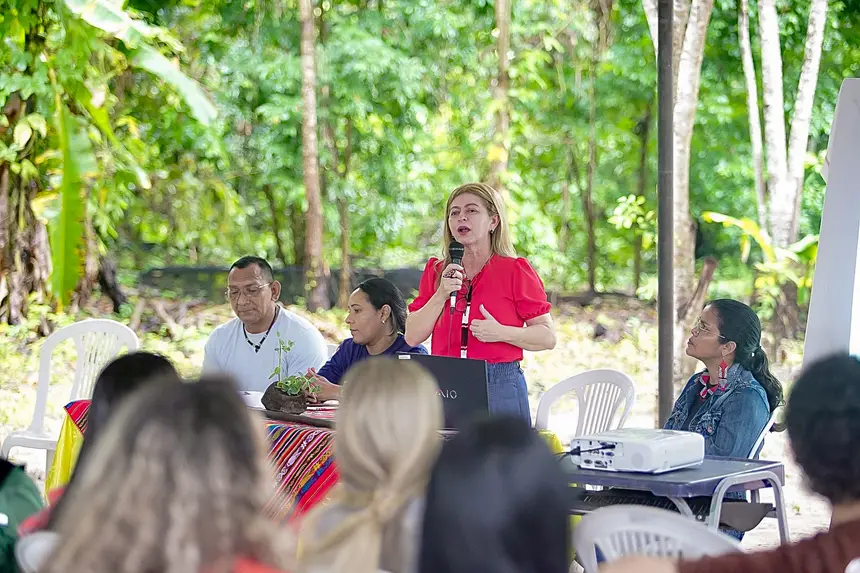
“This experience is extremely rich and historic for the State of Pará. We are concluding a work that began in March, with the effective participation of indigenous peoples in the construction of the draft of the State Policy for Indigenous School Education. It is something unprecedented, as no other government has promoted such intense and respectful listening of the territories. As a teacher who has worked with indigenous peoples for years, I feel immense satisfaction and emotion in seeing this moment happen. It is gratifying to know that this law will positively impact the communities and provide future generations with what many of their ancestors did not have. Even with the fatigue of the journey, the feeling is one of duty fulfilled. We are contributing in an organic and real way to transform indigenous school education in Pará, with the support of Sepi, Seduc, PGE, Fepipa, and the entire team of the working group.”
Three Structuring Axes
The proposal is organized around three main axes: the creation of the Indigenous School Education Policy (PEEI), the establishment of the State Council for Indigenous School Education (CEEEI), and the definition of a special regime for indigenous education servers. The pillars aim to ensure the right to specific, differentiated, intercultural, bilingual, and community education, as provided for in the Federal Constitution and the guidelines of Brazilian educational legislation.
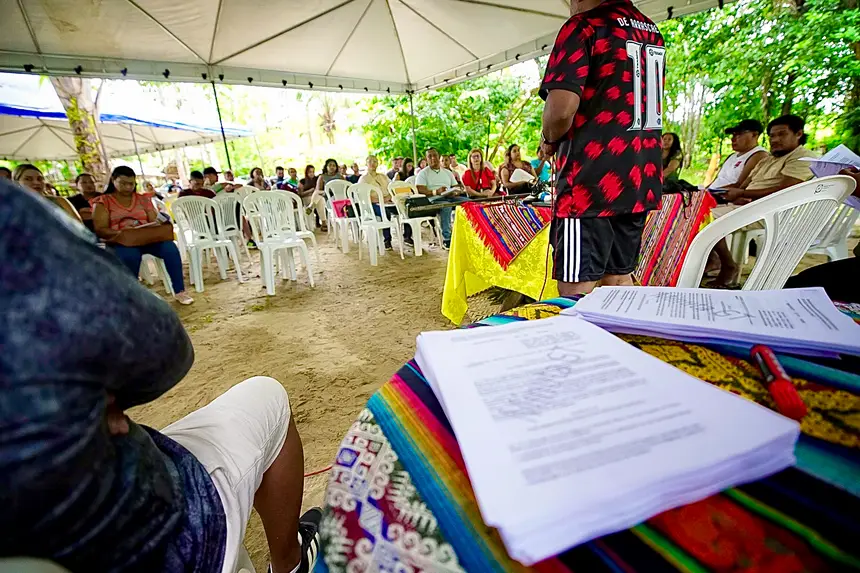
The hearing also reinforced the commitment to an education that respects the cultural, linguistic, and territorial differences of indigenous peoples, strengthening the autonomy and protagonism of communities in the teaching-learning process.
Representing the Federation of Indigenous Peoples of Pará (Fepipa) and also as the director of the school in the Indigenous Land Mãe Maria, educator Concita Sompré highlighted the historical relevance of the moment for the indigenous peoples. “We are experiencing an important step in the construction of the indigenous school education policy that we have long sought. This draft law is the result of a collective struggle and represents the realization of fundamental rights. It is a milestone to ensure an education that values our ancestral and Western knowledge, reaffirms our identities, and strengthens the fight for life and territories. Since February, we have been committed to this process, facing many challenges, but without retreating. For me, it is a realization to see this proposal taking shape because it carries 525 years of resistance from indigenous peoples. This is a journey that points to education as the path to a future of peace, dignity, and security. One day, I will be an ancestor of someone, and I want this voice and this struggle to be remembered.”
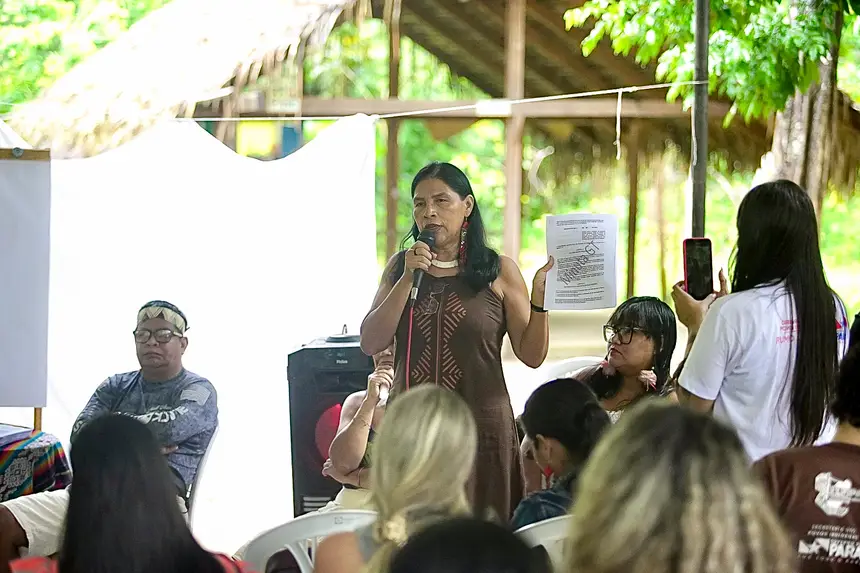
Katê Parkatejê, Secretary of Indigenous Peoples of the municipality of Bom Jesus do Tocantins, highlighted the importance of the hearing held in the Indigenous Land Mãe Maria as an essential step to ensure specific and quality indigenous school education in the villages.
“Today we are gathered with leaders, teachers, and community representatives to discuss closely how this educational policy will be built. It is a moment of unity between the Secretariat of Indigenous Peoples, the state government, the municipality, and partners, so that we can guarantee, in the future, a school designed for the indigenous reality, respecting our particularities, cultures, and territories. This consultation is fundamental to ensure a law that meets the needs of the peoples of our municipality and all of Pará.”
Chief Kátia Silene, a leader of the Kyikatêjê people from the Indigenous Land Mãe Maria, emphasized the importance of the collective construction of indigenous school education and the participation of communities in discussions about projects that impact the territories.
“Our Political Pedagogical Project (PPP) needs to respect our culture, our languages, and ways of living. The presence of Sepi, Fepipa, Seduc, and all partnerships strengthens us in this process. Education, for me, is a tool of resistance and transformation. I believe that with it, we can train our own researchers, doctors, and indigenous entrepreneurs, with opportunities arising from our territory. It is with education that we open our eyes, defend our culture, and exist with dignity.”
The process of constructing the law is coordinated by Sepi and has the support of the Federation of Indigenous Peoples of Pará (Fepipa), the State Attorney General's Office (PGE), the Ministry of Indigenous Peoples (MPI), the State Department of Education (Seduc), the State University of Pará (Uepa), and the Public Ministry of the State of Pará (MPPA).
The next hearing is already confirmed for the municipality of Itupiranga, continuing the cycle of consultations in the eight ethnoregions of Pará. At the end of the process, the final text will be submitted to the Legislative Assembly of the State of Pará (Alepa), consolidating a milestone in valuing the identities and knowledge of indigenous peoples.
Text: Wellyngton Coelho


